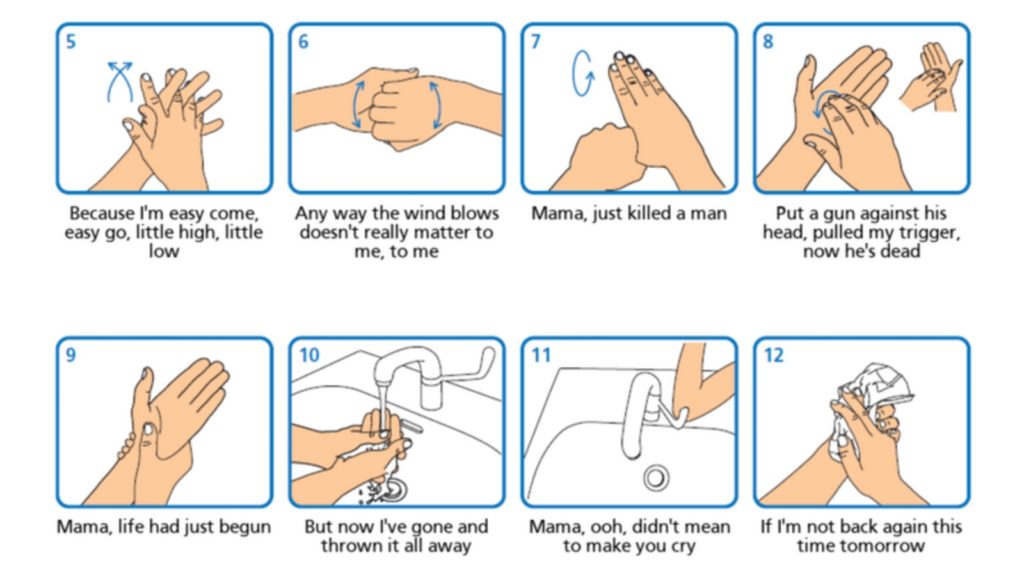There is no doubt that the unexpected Coronavirus outbreak has impacted people globally on a monumental scale and effectively put daily life on hold and businesses on the brink. From strict handwashing to elbow bumps, common cold paranoia and social distancing, COVID-19 has now moved to the next level in the UK and other countries and businesses will have to adjust in order to survive the upcoming uncertain times. The basics of food, medication and shelter are often discussed in crisis talks but conversation quickly shifts to business needs and the economy.
What’s going to happen?
In a challenging situation like this, we have to pull together and prepare as much as possible. The government is expecting disruption for around 3 months but beyond that is still uncertain. This makes it difficult for any business to plan. While social distancing and quarantine is the visible result of the virus, it’s hard to predict what the full impact of this crisis will be.
The first stage for a business owner is to react to the situation. There are already company emails coming in to explain how they are dealing with COVID-19 and how it will affect the future customer relationship. Some businesses are going into ‘exception mode’ – for example restaurants have to close but they are offering a takeaway service. However, it’s difficult to sustain new temporary services in the long term but government funding may help keep afloat in the short term.
Remote working solutions
In times of crisis, companies need to have a contingency plan and remote working can provide a continuity advantage. This isn’t always an option for people but in most cases, businesses can adapt services to allow for this and keep employees on board. A B2B company may already have or quickly decide to build a multi-skilled team based in different countries. This will give them the option of having a longer working day, over different time zones and with reduced overheads, so they can focus on competitive pricing for clients.
How to deal with a decline in revenue?
There are some businesses that will thrive during this crisis because of their existing online services or because they have reacted quickly and discovered a new niche. Businesses are adapting at speed and pro-actively changing their offering to fit the upcoming market changes.
The first step is to effectively rewrite your business plan based on the new circumstances. This doesn’t have to be a big chore; it could just be a set of new objectives and realistic options with new services. Start by assessing what is essential and what could potentially move online. Face to face meetings that don’t require physical contact are no longer encouraged so an easy option is to do this via a video chat facility such as Skype, WhatsApp or Zoom. These also allow for group, conference calls too.
For any of these professions, it’s fairly easy to find online services already. Today, you can start leveraging the same technology these companies are using to run your business remotely. For example, architects, accountants, bookkeepers, language tutors or a fitness coach may start to focus solely on the online market.
Assess what services you could offer online, what related skills or existing assets could you use to create an online offer and work out what your audience may be interested in learning from you.
Many of your existing customers will now be forced to spend their time at home and boredom will set in. Therefore, it’s a good opportunity for them to learn a new skill or develop existing hobbies. There becomes a demand for online workshops, which you can facilitate.
Freelancers and small business owners can take their existing skillsets and adapt for a new service. For example, a wedding photographer can sell their skills as a Photoshop editor and online files can be exchanged on sites like peopleperhour.com.
Teachers can sell their skills and curriculum knowledge with parents. They could produce their own unique downloadable learning packs.
Dentists can still book online consultation appointments with patients and discuss their treatment options. They can provide recommendations and procedures so that the patient is completely prepared for treatment when it’s safe to go ahead in the coming months.
What help is available for businesses?
We have a growing situation of uncertainty with Coronavirus and unfortunately many businesses will struggle to keep going with increased costs and reduced revenue. A range of extra support and measures will be in place to help workers, benefit claimants and businesses affected by coronavirus. The government is offering some tax relief for self-employed and small businesses but what they can’t provide is the actual customers. Some small businesses are living hand to mouth to stay open and a crisis like this could be the final nail in the coffin.
What is the UK government strategy for dealing with the crisis?
With the number of confirmed cases on the rise in the UK, we can look at the impact Coronavirus has had on other countries like Italy, China and Spain to note what to expect. The government is focused on the number of recoveries and boosting resources. For example, if you are in the manufacturing industry and capable of working to produce ventilators, the government is willing to invest in production to meet demand.
Use the time to be creative
There are already pressures on broadband as internet usage soars with people jumping online for help, panic buying and business solutions. Therefore, now is a good time to attempt to stand out from the crowd and boost your creativity output.
One way to get started is to talk about the virus and provide advice or support. For example, there are alternative ways of explaining the UK strategy to delay the peak of the virus…..
Infographics are also a great piece of content to provide information As the number of confirmed COVID-19 coronavirus cases in the United Kingdom increases, this regularly updated map tracks the spread of the virus throughout the country.
 You will find more infographics at Statista
You will find more infographics at Statista
Some of the government advice has been to sing “Happy birthday” while washing your hands but others have recommended new popular songs to make it more appealing, like Bohemian Rhapsody by Queen or one of your own songs if you are an artist……
The UK strategy is focused on delaying the peak of the virus to relieve pressure on the NHS and society as a whole. People over 70 years should isolate to protect themselves. For the majority of the over 70s in the UK, staying at home isn’t a big issue if they are retired and healthy but those who need regular assistance are likely to suffer. There are also many company directors over 70 yrs. and still working on business related tasks.
As a business owner, it may be necessary to spend extra time on customer service, being as transparent as possible and dealing with any refunds or new questions customers may have. One of the first steps you can take is to update your website with the latest information, providing links to more information, advice or support for customers and adopt a hygiene protocol. You can also encourage a no touch policy and invite customers to do online shopping to promote continuity of service.
5 ways business owners can stay in control
- Stay in touch with your customers and share good practice.
- Keep yourself safe and informed.
- Try hosting online events, team meetings or web conferences.
- Prepare a customer service plan.
- Provide FAQs or specific FAQs for Coronavirus related questions.
What do I need to know?
As Coronavirus spreads, it’s important to know the facts, the symptoms to look out for and what to do if you need help. For the latest health information and advice, go to the NHS website.
Above all else, please stay safe, wash your hands and keep informed of the latest developments.
Enhance your business with digital
Coronavirus is like the Kryptonite to small businesses but Social Ant can overcome and provide essential business support in these dark times!
If you are looking for ways in which your business can be enhanced with digital tools and technology, please contact Social Ant about our bespoke 1-2-1 video training consultations on the following topics:
- Digital Marketing Strategy
- Effective e-commerce
- Paid advertising with Facebook, Instagram and Google Ads
- Creating a new website including wed and social media analytics, search engine optimisation (SEO) and enhancing your business online with Google.
- Facebook for business
- LinkedIn for Business
- Twitter & Hootsuite
- Instagram, Pinterest & Photography
- Email marketing with MailChimp
- Producing engaging online content and editorial calendars
Please email jon@socialant.co.uk for more information, ask any questions or arrange a free 30 minute consultation to get an overview on ways forward.
Be well!
Jon Exton


